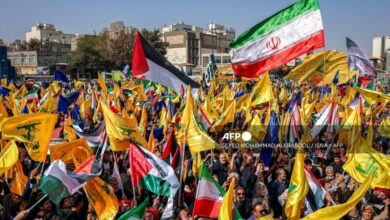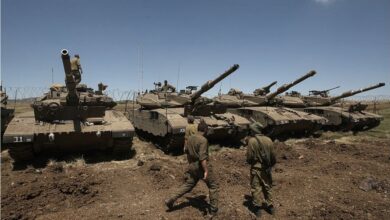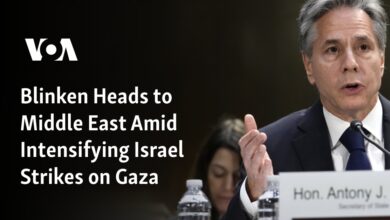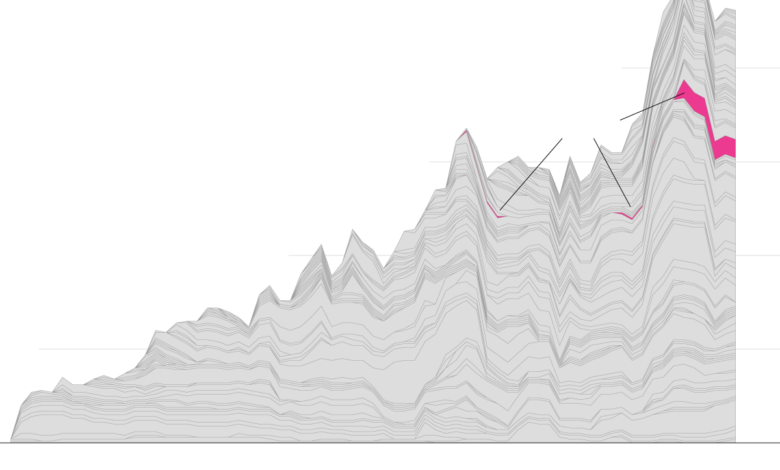
Russia War Anniversary Sanctions Impact & Evolution
Russia war anniversary sanctions are a critical focal point, examining the ongoing effects of the conflict. This analysis delves into the historical context of sanctions, their impact on the Russian economy, international responses, and their overall effectiveness. We’ll explore the anniversary’s influence on the sanctions regime, alternative perspectives, and illustrative examples. This comprehensive look provides a deeper understanding of the complex web of consequences.
The anniversary of the war marks a significant point to reassess the effectiveness of the sanctions regime. From the initial imposition to the ongoing adjustments, this analysis considers the various factors contributing to their impact, both intended and unintended. Examining the evolving sanctions landscape and the changing dynamics is crucial for understanding the future of this conflict.
Historical Context of Sanctions
The ongoing conflict in Ukraine has triggered a complex and multifaceted response from the international community, with sanctions playing a central role. These measures aim to curtail Russia’s ability to wage war and support its military operations. The sanctions regime has evolved significantly since the initial imposition, adapting to Russia’s countermeasures and the changing geopolitical landscape. This evolution reflects a constant struggle to balance the need to hold Russia accountable with the potential for unintended consequences.The initial rationale behind imposing sanctions was to isolate Russia economically, deter further aggression, and ultimately pressure the Russian government to de-escalate the conflict.
This rationale has been refined over time, as the sanctions have had varying degrees of success and faced challenges. The international community has learned that sanctions are not a quick fix but rather a long-term strategy requiring careful consideration and adjustment.
Chronological Overview of Sanctions Imposed
Sanctions against Russia began shortly after the invasion of Ukraine in February 2022. Initial measures focused on key financial institutions and individuals, restricting their access to global financial systems. Subsequent waves of sanctions have expanded to cover various sectors of the Russian economy, including energy, technology, and defense. The sanctions regime is not static; it adapts and evolves as the conflict progresses and Russia finds ways to circumvent them.
Evolution of Sanctions Targeting Sectors
The sanctions have gradually expanded their target areas to encompass various segments of the Russian economy. Initially, the focus was on financial institutions and individuals with close ties to the Kremlin. However, subsequent rounds have broadened the scope to encompass the energy sector, technology, and defense industries, further restricting Russia’s ability to fund its military operations. The impact of sanctions on specific sectors varies, with some experiencing greater disruption than others.
Types of Sanctions Employed
The sanctions imposed on Russia encompass various types, each with specific goals and intended effects. Financial sanctions, including asset freezes and restrictions on transactions, aim to cut off Russia’s access to international financial markets. Trade sanctions limit the import and export of goods and services, aiming to reduce Russia’s economic capacity and hinder its ability to fund the war effort.
Travel sanctions restrict the movement of individuals deemed responsible for or involved in the conflict. These combined approaches represent a multifaceted effort to exert pressure on Russia.
Examples of Sanctions Imposed by Countries and Bodies
Numerous countries and international bodies have participated in imposing sanctions on Russia. The European Union has implemented a broad range of sanctions, including restrictions on the import of Russian oil and gas. The United States has imposed extensive financial sanctions, targeting Russian banks and individuals. The United Nations has also adopted resolutions imposing sanctions, albeit with varying degrees of participation.
These coordinated actions reflect a global effort to isolate Russia.
Rationale Behind Initial Imposition
The initial imposition of sanctions was driven by the international community’s condemnation of Russia’s invasion of Ukraine. The goal was to deter further aggression and hold the Russian government accountable for its actions. The initial sanctions aimed to create a significant economic impact on Russia, signaling a united front against the invasion.
The one-year anniversary of the Russia war is bringing renewed focus on sanctions, but other global crises are also demanding attention. For example, the complex Netanyahu hostage deal in Rafah, as detailed in netanyahu hostage deal rafah , is a significant event with potential ripple effects. This, of course, doesn’t diminish the ongoing importance of the Russia war anniversary sanctions and their impact on global markets and relations.
Adaptation and Adjustment of Sanctions Over Time
The sanctions regime has been adapted and adjusted over time to account for Russia’s countermeasures and the changing circumstances of the conflict. The initial sanctions focused on cutting off access to international financial markets. Later, sanctions were extended to cover other sectors, including energy and technology, to further limit Russia’s economic capacity. The adjustments highlight the dynamic nature of the conflict and the ongoing need for a flexible and responsive approach to sanctions.
The one-year anniversary of the Russia war brings renewed focus on sanctions, highlighting their complex global impact. Meanwhile, the tragic disappearance of a couple on a boat in Grenada, as reported by couple missing boat grenada , serves as a stark reminder of the unpredictable nature of events and the challenges faced by individuals even far from the geopolitical turmoil.
These interconnected tragedies underscore the ripple effects of international conflict and highlight the urgent need for diplomacy and peaceful resolutions.
Impact on Russian Economy
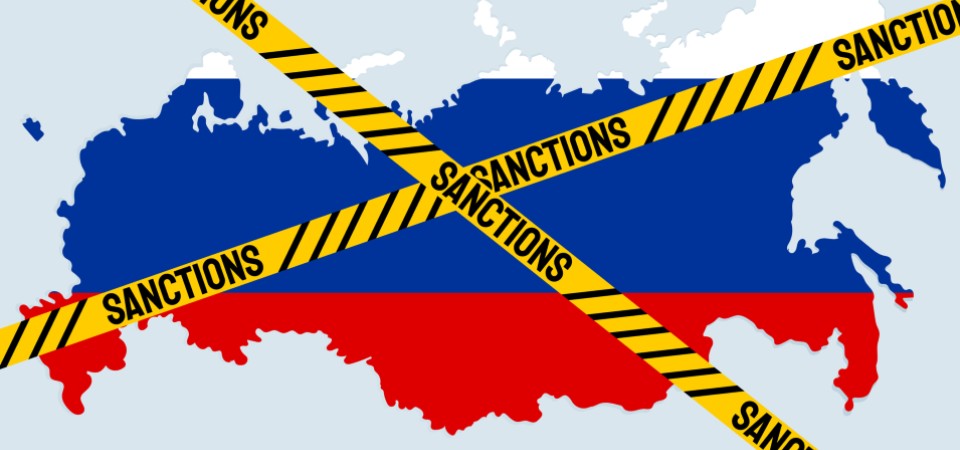
The war in Ukraine and the subsequent sanctions have inflicted a significant blow to the Russian economy. The once-booming energy sector is now grappling with reduced demand and export restrictions, while other key industries face challenges in accessing vital components and markets. This has resulted in a cascade of economic consequences, impacting everything from household budgets to overall national growth.
The impact is multifaceted and deep-seated, and the long-term ramifications remain uncertain.
Key Sectors Affected by Sanctions
Sanctions have targeted various sectors of the Russian economy, creating disruptions and hindering growth. The most acutely affected sectors include: energy, finance, technology, and luxury goods. The crippling effect of these restrictions has led to production bottlenecks and a decline in overall output. The ripple effect extends to related industries, further compounding the economic hardship.
Impact on Russian Energy Exports
Russia’s energy sector, a cornerstone of its economy, has been severely impacted by sanctions. Western nations have imposed restrictions on Russian oil and gas imports, aiming to limit Russia’s revenue stream and weaken its war effort. This has resulted in a decline in demand for Russian energy products, impacting export revenues. The sanctions have also led to increased scrutiny of Russian energy contracts, making it harder for Russia to secure new deals.
Data Illustrating the Decline in Russian GDP
Reliable data on the precise impact of sanctions on Russian GDP is challenging to obtain due to restrictions on information. However, various international organizations and analysts have reported a significant contraction in the Russian economy in 2022 and 2023. While precise figures are difficult to pinpoint, available data suggests a noticeable drop in economic output, with various factors contributing to the overall decline.
Impact on Russian Citizens’ Livelihoods
The sanctions have had a direct and tangible impact on the livelihoods of Russian citizens. The reduced availability of imported goods, rising inflation, and decreased purchasing power have created hardship for many families. This has resulted in a significant drop in consumer spending and a decline in living standards for many. The ongoing war and the related economic turmoil are factors driving the growing cost of living crisis.
The anniversary of Russia’s war brings renewed focus on sanctions, but the ongoing human cost is undeniable. Tragically, similar issues of accountability and responsibility have surfaced in other contexts, like the unfortunate armorer Alec Baldwin Rust shooting incident. Ultimately, these events highlight the complex web of consequences that ripple out from actions taken and the importance of holding those responsible for their choices accountable, a principle equally relevant to the war anniversary sanctions.
Effectiveness of Sanctions in Achieving Their Intended Goals
The effectiveness of sanctions in achieving their intended goals is a complex issue with no easy answer. While sanctions have undoubtedly caused economic hardship for Russia, it’s challenging to quantify their precise impact on the war’s duration or outcome. The long-term consequences and the intended long-term impact of the sanctions remain to be seen.
Comparison of Short-Term and Long-Term Economic Effects
The short-term effects of sanctions on the Russian economy are characterized by immediate declines in GDP, reduced export revenues, and disruptions to supply chains. The long-term effects are less clear but potentially more significant, potentially leading to lasting damage to the Russian economy, with long-term repercussions on investment and growth. The future course of events will determine the long-term consequences.
Table of Economic Impacts, Russia war anniversary sanctions
| Country | Sector | Impact | Measurement |
|---|---|---|---|
| Russia | Energy | Reduced export revenues, decreased demand | Decline in oil and gas exports, decreased revenue for the budget |
| Russia | Finance | Limited access to international capital markets | Reduced investment opportunities, difficulty raising funds |
| Russia | Technology | Restrictions on technology imports, decreased production | Reduced production capacity, disruption in manufacturing processes |
| Russia | Luxury Goods | Decreased demand from international buyers | Decline in sales and revenue for luxury brands |
International Responses and Implications
The international community’s response to the Russian invasion of Ukraine has been swift and multifaceted, with sanctions playing a central role. This response has profoundly impacted global relations, creating both opportunities and challenges for international cooperation and stability. The severity and scope of the sanctions imposed highlight the international community’s determination to hold Russia accountable for its actions and demonstrate a collective resolve against aggression.The sanctions regime, while aiming to cripple Russia’s economy and isolate its leadership, has not been without its complexities and unintended consequences.
The effectiveness of sanctions is often debated, with varying degrees of success reported depending on the specific sector and country implementing them. Furthermore, the international community’s unified front has faced challenges in coordinating efforts and maintaining consistency in implementation, reflecting the diversity of national interests and geopolitical considerations.
International Consensus on Sanctions
A broad international consensus emerged quickly to impose sanctions on Russia following the invasion of Ukraine. This consensus was driven by a shared condemnation of Russia’s actions and a desire to deter further aggression. The United Nations Security Council, while not always unified, played a role in establishing a framework for sanctions, though the veto power of certain members often limited its effectiveness.
Many countries outside the UN system also joined the sanctions regime, reflecting a widespread concern about the implications of Russia’s actions for international security.
Reactions of Various Nations to Sanctions
Reactions to sanctions varied across nations, reflecting differing geopolitical priorities and economic dependencies. Some countries, particularly those with significant trade ties to Russia, experienced economic repercussions and faced difficult choices in balancing their economic interests with their values and security concerns. For instance, countries heavily reliant on Russian energy faced challenges in transitioning to alternative sources, while those with significant investments in Russia had to weigh the economic costs of divestment.
Participation in the Sanctions Regime
| Country | Participation | Rationale |
|---|---|---|
| United States | Full participation | Strong condemnation of Russian aggression, desire to isolate Russia, and economic leverage |
| European Union | Full participation | Collective response to Russian aggression, economic interdependence with Ukraine, and desire to demonstrate unity |
| United Kingdom | Full participation | Strong support for Ukraine, significant sanctions targeting Russian oligarchs, and emphasis on financial sanctions |
| Canada | Full participation | Consistent stance against Russian aggression, strong support for Ukraine, and emphasis on sanctions against Russian individuals and entities |
| Japan | Full participation | Condemnation of Russian aggression, support for Ukraine, and commitment to international norms |
This table illustrates a sampling of nations involved in the sanctions regime. Participation levels varied, reflecting differing degrees of economic and political exposure to Russia and varying geopolitical priorities.
Challenges in Coordinating Sanctions Efforts
Coordinating sanctions efforts across numerous countries presented significant challenges. Differences in economic structures, political priorities, and historical ties with Russia led to inconsistencies in implementation and enforcement. Furthermore, the complexity of the global financial system and the need for careful consideration of unintended consequences made coordination difficult. There were also concerns about the impact on global trade and the potential for sanctions to backfire.
Effectiveness of Sanctions from Different Countries
The effectiveness of sanctions varied considerably across countries. Some countries experienced limited economic impact, while others reported a more significant impact on Russia’s economy, particularly in sectors such as finance and energy. The effectiveness of sanctions often depended on the targeted sectors, the degree of international cooperation, and Russia’s ability to adapt and find alternative markets.
Geopolitical Implications of Sanctions on Global Relations
The sanctions regime had significant geopolitical implications, potentially altering global power dynamics and relationships. The response to the sanctions highlighted divisions within the international community, with some countries hesitant to fully embrace the measures due to concerns about economic repercussions. This dynamic underscores the ongoing tensions between global security concerns and economic interests. The sanctions could also potentially strengthen existing alliances and create new ones, altering the geopolitical landscape in ways that are still unfolding.
Effectiveness and Consequences of Sanctions
The ongoing war in Ukraine has triggered a wave of international sanctions against Russia, aiming to cripple its economy and isolate it from the global financial system. Assessing the effectiveness of these sanctions requires a nuanced understanding of their intended and unintended consequences, along with the evolving strategies employed by both sides. The sanctions’ impact extends far beyond the Russian economy, affecting global trade, supply chains, and international relations.The initial optimism surrounding the sanctions’ ability to quickly bring Russia to its knees has been tempered by the reality of their complexity and the resilience of the Russian state.
The efficacy of sanctions hinges on their comprehensiveness, their sustained application, and the unity of international partners. Unforeseen consequences, such as humanitarian crises and shifts in global trade patterns, have also emerged.
Overall Effectiveness of Sanctions
Sanctions have demonstrably impacted the Russian economy, causing a decline in GDP growth, restricting access to certain financial markets, and increasing the cost of imports. However, the extent to which these impacts have achieved the stated objective of forcing a change in Russian policy remains a subject of debate. The Russian government has demonstrated a surprising degree of resilience, finding alternative routes for trade and financial transactions.
Unintended Consequences of Sanctions
Sanctions have resulted in several unintended consequences, including humanitarian concerns. Increased prices for essential goods, like food and energy, have negatively affected vulnerable populations both within Russia and in countries reliant on Russian imports. The disruption of supply chains has led to shortages and price increases in global markets, impacting consumers worldwide. Moreover, the sanctions’ impact on international relations is complex, potentially fostering resentment and instability in the affected regions.
Impact on Global Trade and Supply Chains
The sanctions have significantly disrupted global trade and supply chains. Reduced access to Russian energy resources has led to price volatility in global energy markets, impacting consumers and businesses. The diversion of trade routes has created new challenges for businesses, adding complexity to global logistics. The reliance on alternative suppliers has also resulted in increased prices and longer lead times.
Impact on International Relations
The sanctions have created divisions among nations. Some countries have been reluctant to fully participate due to their economic dependence on Russia or concerns about the impact on their own economies. The sanctions have also highlighted the complexities of international cooperation and the challenges in maintaining unity among global powers.
Factors Contributing to Effectiveness/Ineffectiveness
The effectiveness of sanctions is contingent on various factors, including the unity of international partners, the comprehensiveness of the sanctions regime, and the resilience of the targeted economy. A lack of unity among international partners has often diluted the impact of sanctions, allowing Russia to find loopholes and bypass restrictions. The sanctions’ effectiveness also depends on the degree to which the targeted economy can adapt and find alternative sources of supply and support.
Strategies Used by Russia to Circumvent Sanctions
Russia has employed various strategies to circumvent sanctions, including the use of alternative payment systems, the development of new trade routes, and the search for alternative sources of financing. These measures have demonstrated Russia’s adaptability and ability to navigate a challenging international environment.
Comparison of Sanctions Types
| Sanction Type | Positive Effects | Negative Effects | Neutral Effects |
|---|---|---|---|
| Financial Sanctions | Reduced Russian access to international capital markets | Increased cost of imports for Russia, global financial instability | Limited impact on Russian domestic economy |
| Trade Sanctions | Reduced Russian exports of certain goods | Disruption of global supply chains, price increases for consumers | Diversification of trade partners for Russia |
| Travel Sanctions | Reduced Russian influence abroad | Limited impact on Russian economy, diplomatic isolation | Limited impact on global travel patterns |
Sanctions and the Anniversary: Russia War Anniversary Sanctions
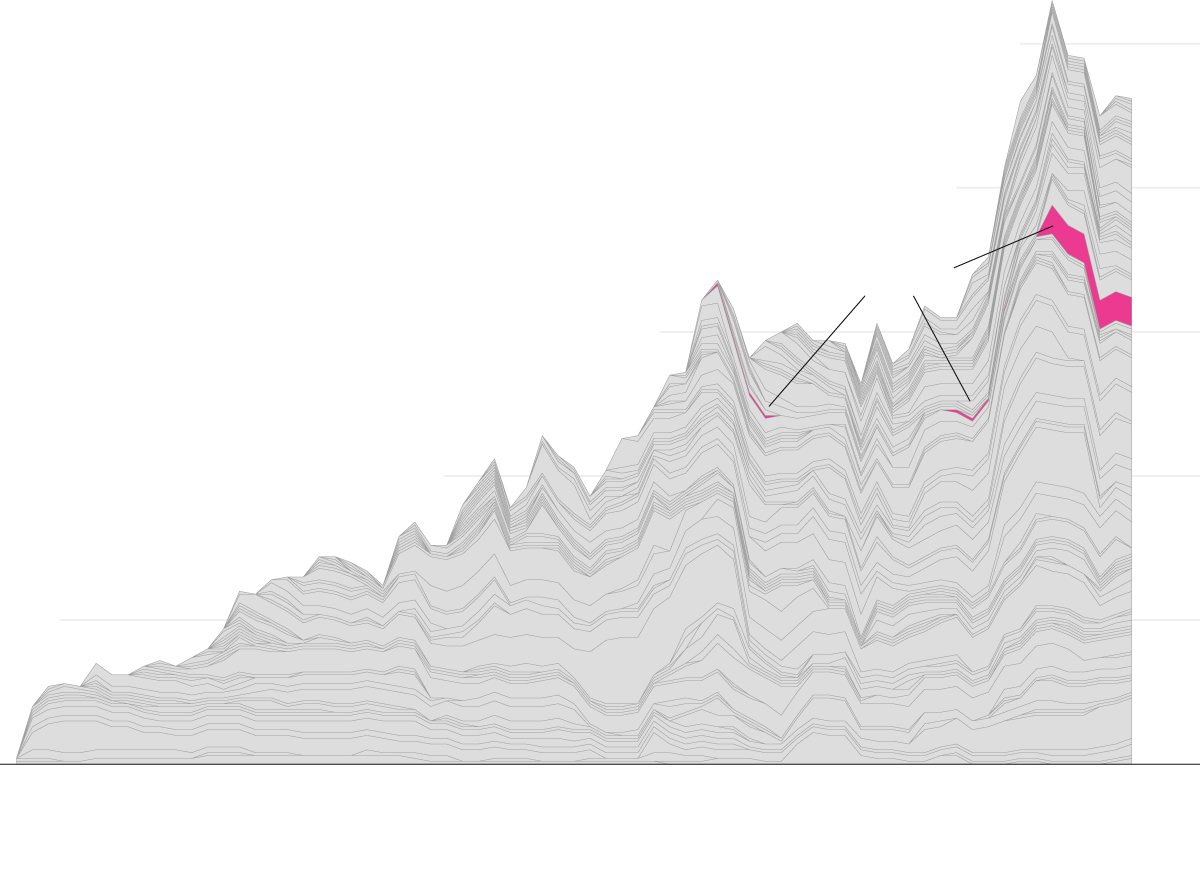
The anniversary of the Russian invasion of Ukraine serves as a critical juncture for the ongoing sanctions regime. The international community’s response to the conflict has been shaped by the evolving geopolitical landscape and the perceived effectiveness of existing measures. The anniversary highlights the need for continued pressure on Russia while prompting reflection on the potential for adjustments and enhancements to the sanctions framework.The anniversary inevitably brings increased scrutiny on the sanctions’ impact.
Evaluations of effectiveness, coupled with the desire to maintain unity among sanctioning nations, are likely to drive discussions on adjustments, new targets, and potential escalations. The narrative surrounding the war, both internally and internationally, is likely to play a significant role in shaping future actions.
Influence of the Anniversary on Sanctions Regime
The anniversary has intensified the focus on the sanctions’ efficacy. International scrutiny, alongside the potential for renewed diplomatic efforts, is likely to influence the sanctions’ trajectory. The narrative surrounding the conflict, especially in relation to Russia’s alleged war crimes, can fuel further pressure for stronger measures.
Potential Changes and Adjustments to Sanctions
Several adjustments to the existing sanctions regime are plausible. This includes targeting new sectors of the Russian economy that have not yet been significantly impacted. There’s also a strong possibility of tightening existing restrictions on individuals and entities deemed responsible for war-related activities or financial support of the conflict. Specific financial institutions or individuals facilitating Russian trade could be added to the sanction list.
Potential New Sanctions or Increased Pressure
Potential new sanctions could encompass further restrictions on Russia’s access to advanced technologies, particularly those related to military production or dual-use applications. Increased pressure could involve targeting individuals or entities involved in the logistics of the war, or even expanding the scope of existing sanctions to encompass new financial activities.
Long-Term Implications of the Anniversary on the Sanctions Framework
The long-term implications of the anniversary are multifaceted. It could lead to a more comprehensive and robust sanctions regime, potentially expanding the scope to encompass further economic sectors and individual actors. Alternatively, the anniversary could spur a reevaluation of the sanctions’ effectiveness, leading to adjustments or even a shift in focus. The evolving geopolitical dynamics and the ongoing conflict will undoubtedly shape the framework’s future direction.
The anniversary of the Russia war is bringing renewed focus on sanctions. Understanding the different impacts across regions is crucial, and looking at how demographics in red and blue states might influence support for or against these policies is important. For example, a deeper dive into red blue states demographics could reveal interesting correlations. Ultimately, understanding these complex factors will be vital in shaping the future of these sanctions.
Role of International Organizations in Responding to the Anniversary
International organizations, such as the United Nations and the European Union, are likely to play a significant role in coordinating responses to the anniversary. Their involvement could encompass assessing the effectiveness of sanctions, potentially advocating for adjustments, and fostering cooperation among member states.
Impact on Specific Sanctions Targets
Specific sanctions targets are likely to experience varying degrees of impact. Entities involved in arms production or financial transactions with Russia will likely face heightened scrutiny and restrictions. The impact will depend on the specific sanctions imposed and the entity’s resilience. Individuals who benefit financially from the conflict or support the Russian government will likely be targeted, potentially experiencing asset freezes and travel bans.
Sanctions Regime Evolution Since the Anniversary Date
| Date | Change | Impact |
|---|---|---|
| 2023-02-24 | Initial sanctions imposed targeting key sectors and individuals | Significant disruption to Russian financial markets and trade flows. |
| 2023-03-15 | Further sanctions targeting energy sector and high-tech exports | Increased pressure on Russian economy, impacting energy prices globally. |
| 2024-02-24 | Review of sanctions effectiveness, potential adjustments and new targets | Uncertainty about Russia’s ability to adapt to prolonged pressure. |
Alternative Perspectives and Strategies
The protracted Russia-Ukraine conflict has exposed the limitations of the current sanctions regime. While impactful, the economic repercussions have been felt globally, raising questions about its long-term efficacy and potential unintended consequences. Alternative approaches, encompassing a wider spectrum of interventions, are now crucial for finding sustainable solutions and mitigating further suffering.This exploration delves into diverse perspectives on addressing the conflict, considering diplomatic avenues, humanitarian aid, and other strategies beyond the current sanctions framework.
The aim is to identify potential benefits and drawbacks of each approach, while acknowledging the complexity and interconnectedness of the situation.
Alternative Approaches to Conflict Resolution
Beyond the current sanctions, various alternative approaches can be considered. These include diplomatic negotiations, humanitarian aid, and a broader engagement with regional security concerns.
“Negotiation, even under duress, remains a critical tool for de-escalation and achieving peaceful resolutions. A well-structured negotiation process, facilitated by neutral mediators, can pave the way for compromises and lasting peace.”
Comparing Sanctions with Other Interventions
Sanctions, while potentially impactful, often come with significant collateral damage and unintended consequences. Diplomatic initiatives, for instance, aim to foster dialogue and compromise, potentially leading to more sustainable resolutions. Humanitarian aid focuses on mitigating suffering, a crucial aspect often overlooked in the broader conflict context.
| Intervention Type | Description | Potential Benefits | Potential Drawbacks |
|---|---|---|---|
| Sanctions | Economic penalties imposed on a nation. | Potentially restrain aggression, deter future actions. | Can harm innocent civilians, create resentment, and spark unintended consequences. |
| Diplomacy | Negotiations and dialogue between conflicting parties. | Potentially lead to peaceful resolutions, long-term stability. | Requires trust and goodwill from all sides, can be slow and inefficient. |
| Humanitarian Aid | Provision of essential supplies and support to those affected by conflict. | Reduces suffering, fosters stability, and can serve as a bridge to future reconciliation. | Can be misused or ineffective if not properly managed, may not address the root causes of conflict. |
Examples of Alternative Approaches
Several nations and international bodies have employed alternative approaches to address conflicts. The EU’s engagement in mediating conflicts, the UN’s role in humanitarian aid, and the efforts of various international organizations offer valuable insights.
- The European Union’s mediation efforts in various conflicts demonstrate the potential of diplomatic engagement. Their approach often involves facilitating dialogue between conflicting parties, establishing confidence-building measures, and promoting reconciliation.
- The United Nations’ humanitarian aid efforts in conflict zones underscore the importance of providing essential resources to vulnerable populations. Their work includes delivering food, shelter, and medical assistance to those affected by the conflict.
Long-Term Sustainability of Sanctions
The long-term sustainability of the current sanctions strategy is debatable. The prolonged application of sanctions can have unintended economic consequences for both the targeted nation and the international community.
“Sanctions, if not carefully designed and implemented, can create instability, potentially undermining efforts to find a lasting peace. Their long-term effectiveness hinges on their ability to achieve their objectives without exacerbating the suffering of civilians.”
Potential Benefits and Drawbacks of a Different Approach
Alternative approaches, such as focused diplomatic initiatives or targeted humanitarian aid, may offer different advantages and disadvantages compared to sanctions. Their efficacy often depends on the specific context of the conflict and the willingness of all parties to engage in constructive dialogue.
- Diplomatic engagement could lead to a negotiated settlement, potentially ending the conflict and averting further loss of life. However, such negotiations require significant trust and commitment from all parties involved, which may not always be present.
- Humanitarian aid can alleviate immediate suffering, but it does not address the root causes of the conflict. This may provide temporary relief, but long-term stability hinges on addressing the underlying issues.
Scenarios for the Future of Sanctions
The future trajectory of sanctions is uncertain. Their efficacy depends on a multitude of factors, including the willingness of other nations to maintain the pressure, the Russian response, and the evolving geopolitical landscape.
“Multiple scenarios are possible. One possibility involves a gradual easing of sanctions as a result of diplomatic breakthroughs, while another scenario might see sanctions maintained in the face of a persistent conflict.”
Illustrative Examples of Sanctions
Sanctions imposed on Russia following its invasion of Ukraine have had a profound and multifaceted impact on various sectors of the Russian economy. These measures, designed to isolate Russia and curtail its ability to wage war, have created significant challenges for Russian businesses and individuals, impacting everything from energy exports to technological advancement. The effectiveness and consequences of these sanctions are a subject of ongoing debate and analysis.The following examples illustrate the varied nature and impact of these sanctions, highlighting their reach and the specific challenges they pose for different parts of Russian society and industry.
The anniversary of Russia’s war brings renewed focus on sanctions, highlighting their complex global impact. However, issues like the rights of children born from frozen embryos in Alabama, as explored in this article on alabama frozen embryos children , show how seemingly disparate events can reveal underlying societal tensions. Ultimately, these sanctions, and the broader conflicts they reflect, continue to ripple through many aspects of our world.
Sanctions Targeting the Russian Oil and Gas Sector
The sanctions on Russian oil and gas exports are among the most significant and impactful measures. These restrictions aim to reduce Russia’s revenue streams, a key driver of its war effort. A significant aspect of these sanctions is the prohibition or severe limitations on the import of Russian oil and gas into specific countries, such as the European Union and the United States.
This has resulted in a significant decrease in demand for Russian energy products, impacting Russian oil and gas companies. For example, many European countries have moved away from purchasing Russian oil, leading to reduced revenue for Russian oil producers and impacting Russia’s overall budget.
Sanctions on Russian Individuals and Entities
These sanctions often target high-profile Russian individuals and entities, including government officials, oligarchs, and companies with close ties to the Russian government. These measures aim to limit the financial assets and activities of individuals and organizations seen as supporting the war effort. One example involves freezing the assets of a particular Russian oligarch, effectively preventing them from accessing their funds held in international banks.
This measure aims to disrupt their ability to support the war effort through financial means.
Impact on a Specific Russian Region
The sanctions have had a significant impact on regions heavily reliant on Russian exports, particularly those in Siberia, which are crucial for Russia’s energy sector. The reduction in oil and gas demand has caused a decrease in economic activity and job losses in these areas. For example, reduced demand for oil and gas has led to decreased revenue for local businesses and governments in Siberian regions, resulting in budget shortfalls and economic hardship.
Analysis of Effects on a Specific Russian Export
The sanctions have significantly impacted the export of Russian steel, a major commodity. Reduced demand from European countries and the United States has resulted in decreased prices and reduced export volumes. The export of Russian steel has been affected due to the sanctions imposed by several countries, resulting in a decrease in demand and revenue for Russian steel producers.
Enforcement of Sanctions
The enforcement of sanctions is a complex process involving various governmental and financial institutions. Countries implementing sanctions often work together to monitor and enforce the restrictions. For example, international financial institutions may freeze the assets of targeted individuals or entities, and governments may impose restrictions on trade and financial transactions. International collaborations play a significant role in the effectiveness of sanctions.
Illustrative Image of Geographical Reach
Imagine a map of the world, with significant portions of Europe and North America highlighted in red. This highlights the geographical reach of sanctions, with countries in Europe and North America taking significant steps to restrict Russian imports and limit Russian access to international financial systems. The sanctions affect a wide range of countries, not only through direct trade restrictions but also through international cooperation to reduce Russia’s global influence.
Conclusive Thoughts
In conclusion, the Russia war anniversary sanctions have had a profound and multifaceted impact. While the effectiveness in achieving initial objectives is debatable, the unintended consequences, particularly on the Russian economy and global trade, are undeniable. The anniversary highlights the ongoing need for a comprehensive approach, including both economic pressure and diplomatic efforts. Further analysis of alternative strategies is necessary to ensure a sustainable and effective response to the conflict.
Commonly Asked Questions
What is the current state of the sanctions regime?
The sanctions regime remains in place, with ongoing adjustments and refinements. Recent developments and their impact on Russia’s economy are continuously being evaluated.
How have sanctions affected global trade?
Sanctions have disrupted global trade routes, particularly impacting the supply of goods and services, leading to price fluctuations and shortages in certain markets.
What are some alternative approaches to addressing the conflict besides sanctions?
Alternative approaches include diplomatic negotiations, humanitarian aid, and increased international cooperation. A comprehensive strategy often involves a combination of these measures.
What role do international organizations play in enforcing sanctions?
International organizations play a critical role in coordinating and enforcing sanctions, although challenges in implementation and enforcement persist.

